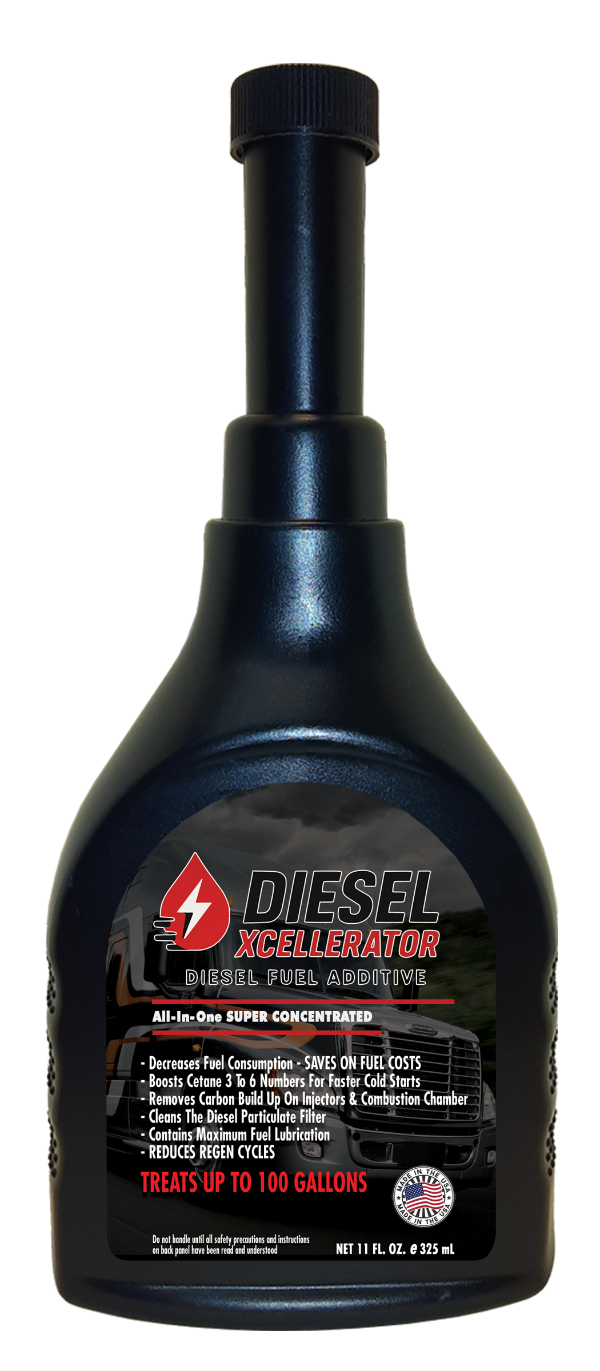Home
>
Car Care Talk
>
Understanding Diesel Fuel: Composition, Additives, Sulfur, Cetane, and Performance Enhancement with Diesel Xcellerator

Understanding Diesel Fuel: Composition, Additives, Sulfur, Cetane, and Performance Enhancement with Diesel Xcellerator
Understanding Diesel Fuel: Composition, Additives, Sulfur, Cetane, and Performance Enhancement with Diesel Xcellerator
Diesel fuel powers commercial vehicles, heavy equipment, and a growing number of personal vehicles. Let’s break down the chemistry of diesel fuel, the reasons for stricter sulfur regulations, the importance of additives, and how improving cetane rating and lubricity—especially with BestLine Racing’s Diesel Xcellerator—can create cleaner, more efficient combustion.
What Makes Up Diesel Fuel?
Diesel is a mixture of hydrocarbons derived from crude oil distilled typically between 200°C and 350°C. The bulk of diesel consists of:
-
About 75% aliphatic hydrocarbons (including paraffins and naphthenes—longer straight, branched, or cyclic carbon chains)
-
Around 25% aromatic hydrocarbons, such as benzene derivatives
-
The average molecular formula is approximately C12H23, covering hydrocarbons from C10 to C15.
Diesel also contains small amounts of compounds with sulfur, nitrogen, and oxygen as impurities.
Diesel Fuel Additives: What and Why?
Modern diesel fuel suppliers typically blend in several additives to:
-
Improve lubricity (lost due to sulfur removal)
-
Enhance cold-flow properties
-
Prevent fuel system corrosion
-
Clean injectors and reduce deposit formation
Common additive types include detergents, lubricity improvers, anti-gel agents, and cetane number enhancers.
Why Was Sulfur Content Greatly Reduced?
Historically, diesel fuel had much higher sulfur content, up to 500ppm. Sulfur, while naturally present in crude oil, leads to:
-
Formation of harmful particulate matter (soot)
-
Impaired function (and physical damage) to modern emissions control systems (like diesel particulate filters and catalytic converters)
Stricter environmental standards mandated by the EPA resulted in ultra-low sulfur diesel (ULSD), with a dramatic reduction to just 15ppm. This shift enables new emissions technologies, slashes air pollution, and helps cities minimize harmful secondary particulate emissions.
The Role of Cetane: What Is It?
Cetane (hexadecane, C16H34) is a hydrocarbon found in diesel and serves as the reference point for the cetane rating or “cetane number” of fuel. This number indicates how readily the fuel ignites under compression:
-
Higher cetane number = shorter ignition delay
-
Faster, cleaner, and more complete combustion
-
Reduced emissions, engine knock, and engine noise
By contrast, a low cetane number means delayed ignition, increased unburned fuel, and higher emissions.
How Diesel Xcellerator Improves Fuel Combustion and Lubricity
With drastic sulfur removal in ULSD, diesel’s natural lubricity has diminished—making fuel system components more susceptible to wear.
Diesel Xcellerator by BestLine Racing is a modern additive formulated to address these deficiencies. Its key benefits include:
-
Restores and boosts lubricity—reducing fuel pump and injector wear
-
Enhances combustion properties—resulting in more complete burning and fewer deposits
-
Improves fuel economy and throttle response
-
Reduces emissions and helps with fewer DPF (diesel particulate filter) regenerations
Additives like Diesel Xcellerator can also act as detergents (keeping injectors clean) and water removers.
The Bottom Line: Cetane, Additives, and Better Performance
-
Diesel fuel is a complex blend of long-chain hydrocarbons and aromatics, refined for combustion efficiency.
-
Additives are critical for modern engines—improving lubricity, combustion, cleanliness, and cold-weather operation.
-
Lowering sulfur content makes diesel much cleaner but necessitates add-on lubricity improvers.
-
Cetane number is the “octane rating” for diesel—higher is better for cold starts, smooth running, lower emissions, and increased mileage.
-
Diesel Xcellerator delivers targeted upgrades in lubricity, cleanliness, and cetane performance.
With thoughtful additive use, today’s diesel fuel can burn cleaner, run smoother, and keep engines lasting longer—embracing both environmental responsibility and highest performance.
Share

